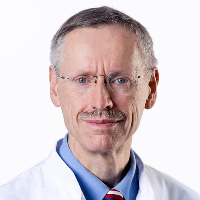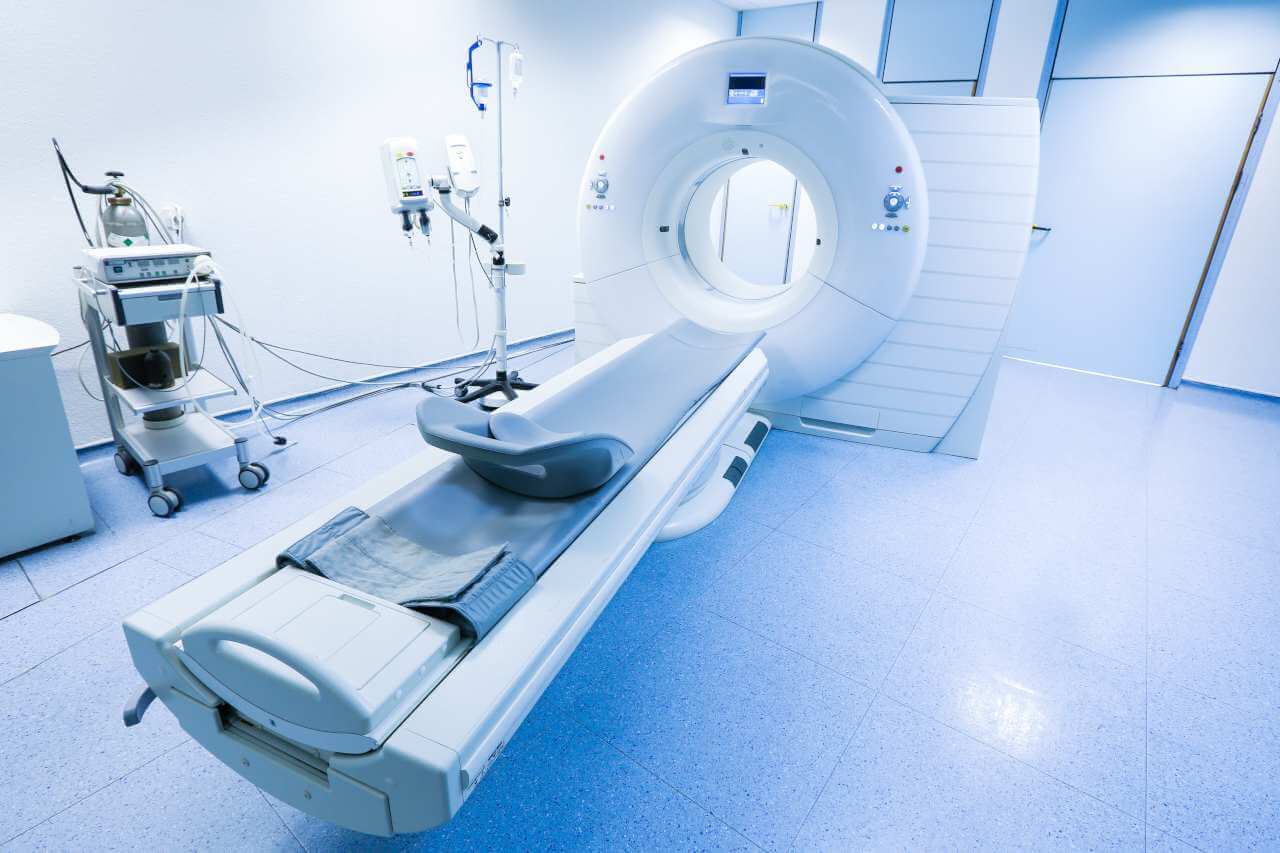
The program includes:
- Initial presentation in the clinic
- history taking
- general clinical examination
- laboratory examination:
- complete blood count
- general urine analysis
- biochemical analysis of blood
- TSH-basal, fT3, fT4
- inflammation indicators
- indicators blood coagulation
- hormonal examination
- MRI/CT of the head (if indicated 650/1200 €)
- consultation of related specialists
- symptomatic specific treatment
- the cost of essential medicines and materials
- nursing services
- control examinations
- full hospital accommodation
- developing of further guidance
Required documents
- Medical records
- MRI/CT scan (if available)
Service
You may also book:
 BookingHealth Price from:
BookingHealth Price from:
About the department
The Department of Adult and Pediatric Endocrinology, Nephrology at the Meoclinic Hospital Berlin provides the full range of medical services in the areas of its specialization. The department admits patients with diseases of the endocrine glands and kidneys, including kidney lesions caused by arterial hypertension. The medical facility carries out all the necessary diagnostic tests: laboratory blood and urine tests, hormone testing, ultrasound diagnostics, computed tomography and magnetic resonance imaging. The department's team of doctors specializes in conservative treatment: drug therapy and hormone replacement therapy. The department's doctors also have vast experience in caring for young patients with hormonal and metabolic disorders. Each patient can count on the development of an individual and the most effective treatment regimen based on the diagnosis, general health condition and clinical indications. The medical facility has all the necessary conditions for providing high-quality medical care at the European level. The department is headed by Prof. Dr. med. Walter Zidek.
A team of endocrinologists provides comprehensive diagnostics and effective treatment of all pathologies of the endocrine glands. Of particular interest is the therapy of pathologies of the thyroid gland, adrenal glands and pituitary gland. Thyroid diseases are quite common in clinical practice, so the specialists are deservedly proud of their experience in this field. The medical facility provides treatment to the patients with Hashimoto's thyroiditis and Graves' disease, goiter, partial functional thyroid autonomy and thyroid cancer. To detect thyroid pathology, the department uses a wide range of diagnostic tests: laboratory hormone tests (TSH, T3, T4, calcitonin), palpation and clinical examination, ultrasound scanning, computed tomography and magnetic resonance imaging (if clinically indicated), as well as tumor marker testing and biopsy with histological examination for suspected thyroid cancer. To combat thyroid pathologies, the department's specialists use well developed drug therapy regimens and hormone replacement therapy. If the patient requires surgery, for example, for goiter or thyroid cancer, the specialized surgeons are engaged in the therapeutic process.
The department's medical team also focuses on children with hormonal and metabolic disorders. The specialization includes the treatment of amino acid metabolism disorders, neurotransmitter and urea cycle disorders, carbohydrate metabolism disorders, vitamin synthesis and transport disorders, lysosomal storage diseases and other pathologies. Based on the diagnostic results, doctors develop an individual treatment regimen, which is usually based on the intake of a set of medications. To correct hormonal disorders, the specialists resort to hormone replacement therapy.
An integral part of the department's work is the treatment of kidney diseases, including organ lesions due to diabetes mellitus. The diagnostics for the presence of nephrologic pathology involves the use of the full range of tests – specific blood tests, ultrasound scanning, computed tomography and magnetic resonance imaging (if indicated). The department's specialists provide high-quality medical care to the patients suffering from upper urinary tract infections (pyelonephritis), diabetic and hypertensive nephropathy, glomerulonephritis, vascular and interstitial nephritis, as well as cystic kidney disease. In addition, many patients with acute or chronic kidney failure seek medical help from the department. The first-line treatment is drug therapy with modern medications. The treatment regimen necessarily includes diet therapy, smoking cessation (in the presence of this bad habit), regular moderate physical activity. If kidney lesions develop due to diabetes mellitus, hypoglycemic drugs are required. The drugs to normalize blood pressure are also often included in the treatment regimen. The last-line therapy for kidney failure is dialysis (renal replacement therapy).
The department's main clinical activities include:
- Endocrinology
- Diagnostics and treatment of thyroid diseases
- Hypothyroidism
- Hyperthyroidism
- Hashimoto's thyroiditis and Graves' disease
- Goiter
- Partial functional thyroid autonomy
- Thyroid cancer
- Diagnostics and treatment of adrenal diseases
- Benign and malignant adrenal tumors
- Adrenal insufficiency
- Adrenogenital syndrome
- Hirsutism
- Secondary arterial hypertension caused by adrenal diseases
- Diagnostics and treatment of pituitary diseases
- Prolactinoma
- Pituitary adenoma
- Cushing's syndrome
- Acromegaly
- Pituitary insufficiency
- Diagnostics and treatment of rare hormonal and metabolic disorders
- Prader-Willi syndrome
- Ullrich-Turner syndrome
- Klinefelter syndrome
- Androgen insensitivity syndrome
- Phosphate diabetes
- Secondary osteoporosis
- Lipodystrophy
- Cystic fibrosis-related endocrinopathy
- Diagnostics and treatment of hormonal and metabolic disorders in children
- Amino acid metabolism disorders (for example, tyrosinemia type 1, phenylketonuria, maple syrup urine disease)
- Neurotransmitter deficiencies
- Urea cycle disorders
- Carbohydrate metabolism disorders (for example, hereditary fructose intolerance, galactosemia, glycogenosis)
- Fatty acid oxidation and carnitine cycle defects (for example, MCAD, VLCAD, and LCHAD deficiencies)
- Respiratory chains and energy metabolism deficiencies
- Impaired vitamin synthesis and transport
- Creatine biosynthesis deficiencies
- Lysosomal storage diseases
- Peroxisomal disorders
- Diagnostics and treatment of thyroid diseases
- Nephrology
- Diagnostics and treatment of acute and chronic kidney failure
- Diagnostics and treatment of upper urinary tract infections (pyelonephritis)
- Diagnostics and treatment of diabetic and hypertensive nephropathy
- Diagnostics and treatment of glomerulonephritis
- Diagnostics and treatment of interstitial nephritis
- Diagnostics and treatment of kidney cysts
- Other medical services
Curriculum vitae
University Education and Professional Career
- 1971 - 1976 Study of Human Medicine at the University of Muenster.
- 1976 - 1977 Study of Human Medicine at Heidelberg University.
- October 1977 State examination, Heidelberg University.
- 1978 Doctoral thesis defense with honors, University of Muenster.
- 1977 - 1979 Research Fellow, Institute of Physiology, University of Muenster.
- 1978 - 1979 Chief Medical Officer (military obligations), Navy, Kiel.
- 1979 - 1985 Research Fellow, Department of Internal Medicine, University Hospital Muenster.
- 1981 and 1983 Work in the Department of Oncology and Hematology, University Hospital Muenster.
- 1982 Work in the Department of Gastroenterology, University Hospital Muenster.
- 1982 - 1983 Work in the Department of Cardiology and Angiology, University Hospital Muenster.
- January 1984 Habilitation in Internal Medicine, University of Muenster.
- 18.06.1985 Board certification in Internal Medicine.
- 14.11.1987 Specialization in Nephrology.
- Since June 1985 Senior Physician in the Department of Internal Medicine.
- 01.01.1989 University Lecturer.
- 08.06.1989 Extraordinary Professorship.
- March 1996 Specialization in Nephrology.
- 01.04.1996 - 30.09.2000 Work in the Department of Internal Medicine, Marien Hospital Herne.
- 2000 - 2019 Head of the Department of Internal Medicine IV at the Charite University Hospital Berlin.
- Since November 2000 Board Member of the Berlin Medical Association.
- 2001 - 2004 Chairman of the Board of Management of the German Hypertension League.
Main Clinical Interests
- Treatment of endocrine pathologies: metabolic disorders, diseases of the thyroid gland, adrenal glands, pituitary gland.
- Treatment of kidney diseases: kidney failure, inflammatory kidney disease, inherited kidney diseases, diabetic nephropathy.
Photo of the doctor: (c) Meoclinic
About hospital
The Meoclinic Hospital Berlin is one of Germany's most renowned multidisciplinary private hospitals offering top-class and patient-centered medical care. The hospital opened its doors to patients back in 2000 and today is deservedly proud of its vast experience. It has 28 specialized departments, each of which is responsible for the treatment of a particular group of diseases. A highly professional medical team consisting of 67 doctors takes care of the health of patients. The basis of the work of the doctors of the hospital is the use of the most advanced and, if possible, sparing treatment methods. The hospital is certified according to ISO 9001:2015 standards, so patients benefit from the highest level of the quality of service, adherence to hygiene and safety standards.
The hospital includes almost all fields of modern medicine: internal medicine, general and abdominal surgery, endocrine surgery, vascular surgery, hernia repair surgery, hand surgery, plastic surgery, pediatric surgery, cardiology, pulmonology, gastroenterology, rheumatology, proctology, gynecology, urology, ophthalmology, orthopedics, neurology, neurosurgery. To provide surgical treatment, the hospital has three high-tech surgical suites, which perform both minimally invasive interventions and DaVinci robot-assisted interventions, as well as the most complex operations lasting several hours. In addition, the hospital has an advanced Radiology Center with innovative devices for computed tomography, magnetic resonance imaging, ultrasound diagnostics and X-ray scanning. These resources allow providing accurate diagnostics and effective treatment of the highest European level.
Despite the fact that the hospital has advanced technologies and modern infrastructure, the focus of the medical staff is on the patient – his needs, wishes and well-being. During the treatment in this medical center, patients are surrounded by care, comfort, and they are treated with maximum respect and understanding. The doctors of the hospital use all their professionalism and medical knowledge for the benefit of patients, saving lives even in particularly complex cases.
Photo: (с) depositphotos
Accommodation in hospital
Patients rooms
The patients of the Meoclinic Hospital Berlin live in well furnished rooms, corresponding to the level of luxury five-star hotels. There is a fantastic view from the windows of the patient rooms on the Gendarmenmarkt, the Reichstag, the Friedrichstrasse or the courtyard of the hospital. The hospital has a pleasant atmosphere, which is also facilitated by soothing colors. The standard patient rooms include a comfortable bed, a bedside table, a desk and chairs, a wardrobe with a built-in safe for storing valuables, air conditioning, a minibar, a TV and a telephone. Free Wi-Fi is available in the patient rooms. Each patient room has an ensuite bathroom with shower and toilet, heated floor. There are bath slippers, towels and toiletries in the bathroom. A bathrobe, shower caps, shaving kit and hairdryer are available upon request.
Meals and Menus
The patients of the hospital are offered tasty and healthy three meals a day: breakfast, lunch and dinner. The menu mainly includes vegetable, fruit, poultry and fish dishes. Each patient has a choice of several menus, including traditional Russian and Arabic cuisine, as well as kosher and vegetarian meals.
If for some reason you do not eat all foods, you will be offered an individual menu. Please inform the medical staff about your dietary preferences prior to treatment.
Further details
Standard rooms include:
Accompanying person
Your accompanying person may stay with you in your patient room or at the hotel of your choice during the inpatient program.
Hotel
You may stay at the hotel of your choice during the outpatient program. Our managers will support you for selecting the best option.




